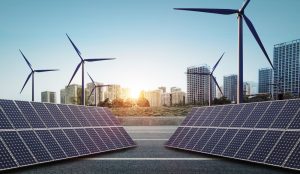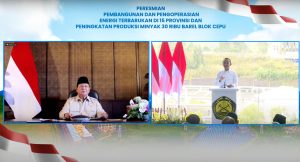Jakarta—The socio-economic impact on the workforce in the fossil energy sector is a major obstacle to the energy transition, according to Andriah Feby Misna, the Director of Various New Renewable Energy and Energy Conservation of the Ministry of Energy and Mineral Resources (MEMR), at the Electricity Connect 2024 event on Friday, November 29.
According to her, the government is looking for solutions to this issue to achieve sustainable and inclusive new and renewable energy (NRE) targets.
“We cannot turn a blind eye to this impact. Many workers in the mining and power plant sectors must face the challenge of job uncertainty. The government is mapping out steps to transfer them to new job opportunities in the NRE sector,” Feby said in a press statement.
Amid economic challenges that threaten workers in the fossil energy sector, the government is committed to developing reskilling and upskilling programs. The goal is to create high-quality jobs in the renewable energy sector, such as solar panel installation, wind energy management, and energy storage systems.
“This transition is not just about changing fuels, but also social transformation. We must ensure that all parties, especially affected workers, benefit,” Feby concluded.
Data from the Ministry of Energy and Mineral Resources shows that more than 267,600 workers in the coal mining sector and 32,600 workers in coal-powered plants (PLTU) are directly affected by this energy transition. In addition, the intermittent nature of renewable energy, such as solar and wind power, is a technical challenge that must be resolved immediately.
Energy storage system
“We need energy storage systems such as battery storage or hydro pumps to ensure that energy generated from renewable sources can be used when needed. This is not just a matter of technology, but also infrastructure,” Feby explains.
Energy Storage System (ESS) is now a major concern. ESS allows energy generated during low demand to be stored and used during high demand. The system involves technologies such as large-scale batteries and hydroelectric storage pumps.
PLN director Darmawan Prasodjo emphasised the importance of the Battery Energy Storage System (BESS) as a more stable energy transition solution. “Renewable energy is highly dependent on natural forces that are not always predictable. Technologies like BESS are key to converting excess energy into electricity reserves that can be used at any time,” he said.
Darmawan also added that the development of BESS will be a priority for PLN in supporting the national energy transition roadmap. “We continue to encourage innovation so that NRE is not only a sustainable solution but also efficient,” he said. (Hartatik)














